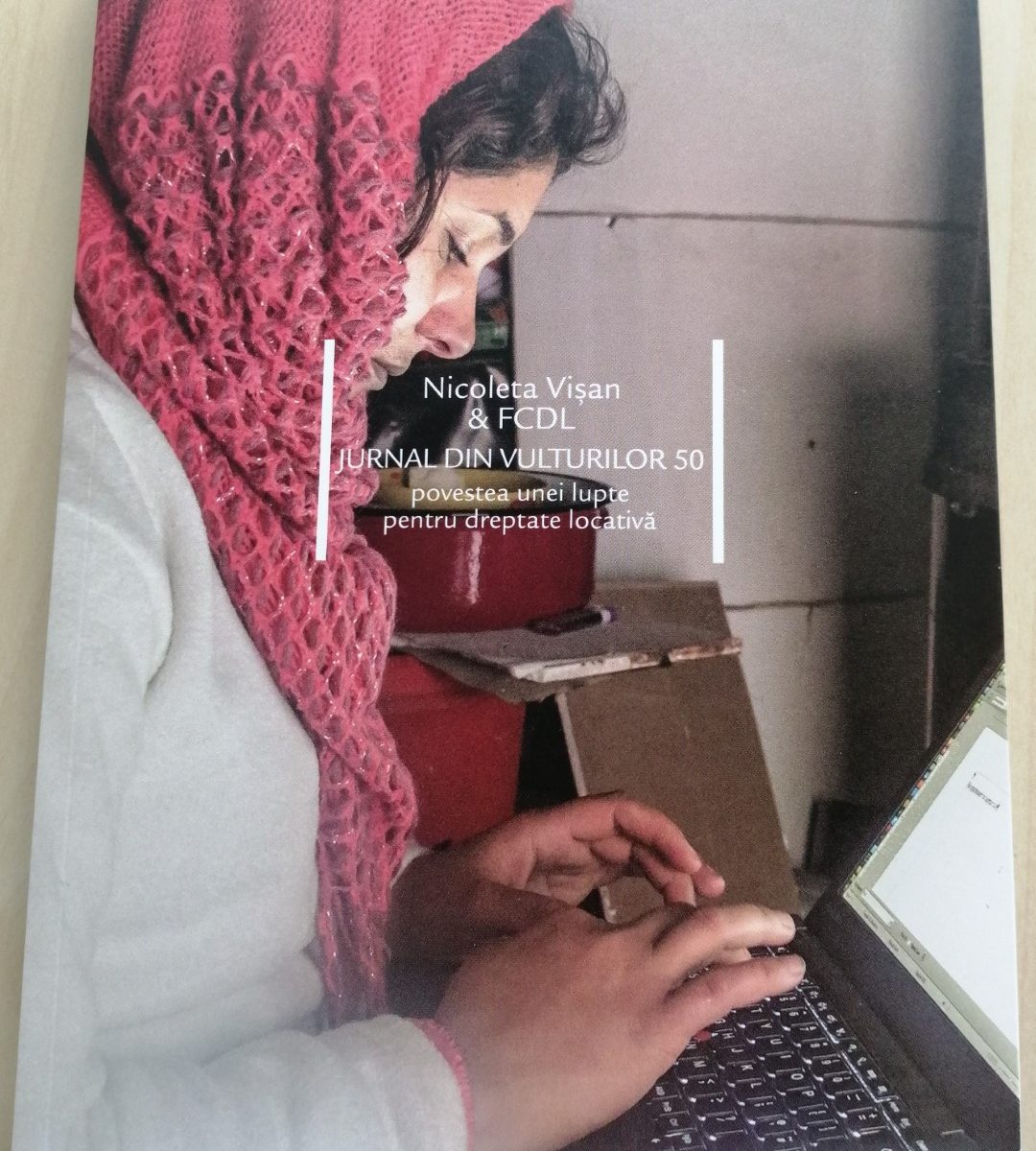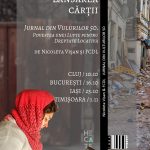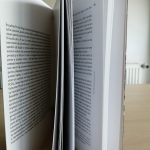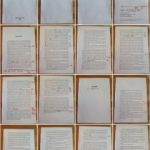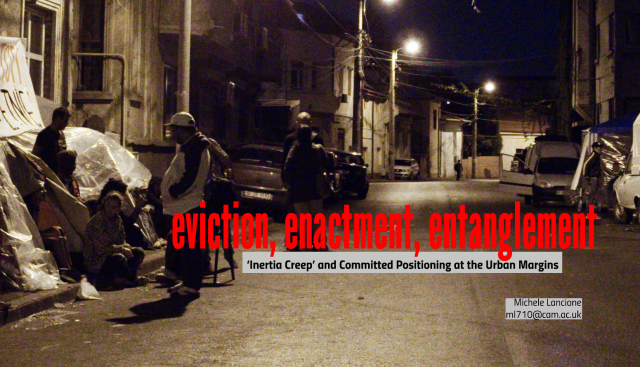After more than three years of plotting, planning, working and sharing our collective book on the fight for the right to housing and the city in Romania is finally available. This is a Common Front for the Right to Housing (FCDL) project supported by the Antipode Foundation (info on the project, here: https://antipodeonline.org/201718-recipients/sapa-1718-lancione/).
The book is titled “Jurnal din Vulturilor 50: Povestea unei lupte pentru dreptate locative”, which means “Diary of Vulturilor: The story of a fight for housing justice”. The core of the book consist of a diary written by Nicoleta Visan, a member of the community of Vulturilor 50 in Bucharest. This was a community of about 150 people, who were evicted in 2014 from their homes but decided to dwell on the street for two years to fight for their right to housing and the city.
Nicoleta began to work on her diary in 2014, with my support and that of other FCDL comrades. Together we produced the first blog of the community (www.jurnaldinvulturilor50.org), which then evolved into our freely available political documentary around housing restitution and housing struggles in Bucharest (www.ainceputploaia.com).
In 2018 we were awarded the Scholar-Activist Antipode Award and with that support we were able to renew our commitment to a collective, grassroot and politically meaningful way of narrating housing struggles. We decided therefore to produce this book as a testament of that fight, but also as a document that can inspire others to move, organise and resist racialised and neoliberal forms of displacement. The book is composed of four parts: there is Nico’s diary (edited by Carolina Vozian), a text contextualizing the history of restitution and housing privatisation in Romania (by Veda Popovici and FCLD), a guide for communities that are likely to face evictions, but also for journalist that are writing about evictions (by Ioana Vlad) and final photographic essay about the Vulturilor eviction and resistance camp by myself. The whole project was complemented by the help of Ioana Florea and Erin Mc El Roy (who is curating the on-line maps that we will launch soon), and many other too! It is published by a joint effort from HECATE and IDEA publishing houses. A translation into English is also on the way and we’ll see light in 2020.
I am so proud of this project, because it shows how it is possible to work meaningfully with communities affected by evictions, without ‘extracting’ knowledge but by co-producing it in a collective form that trespass the remit of the neoliberal academia we live in. This is a wonderful, timely and so important book, coming from a Roma woman and a group of feminist activists that have fought hard to bring it to the fore. If you are in Romania, enjoy the launches (see the poster below). Otherwise, just stay tuned for the English version.
You will be able to buy it in any major Romanian bookstore in a few weeks time; on the IDEA website (http://www.idea.ro/editura/) and also you can come to the launches — just follow Frontul Comun pentru Dreptul la Locuire for the events (Bucharest: https://www.facebook.com/events/770866283370561/)
In solidarity!

